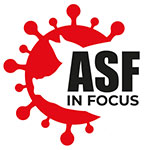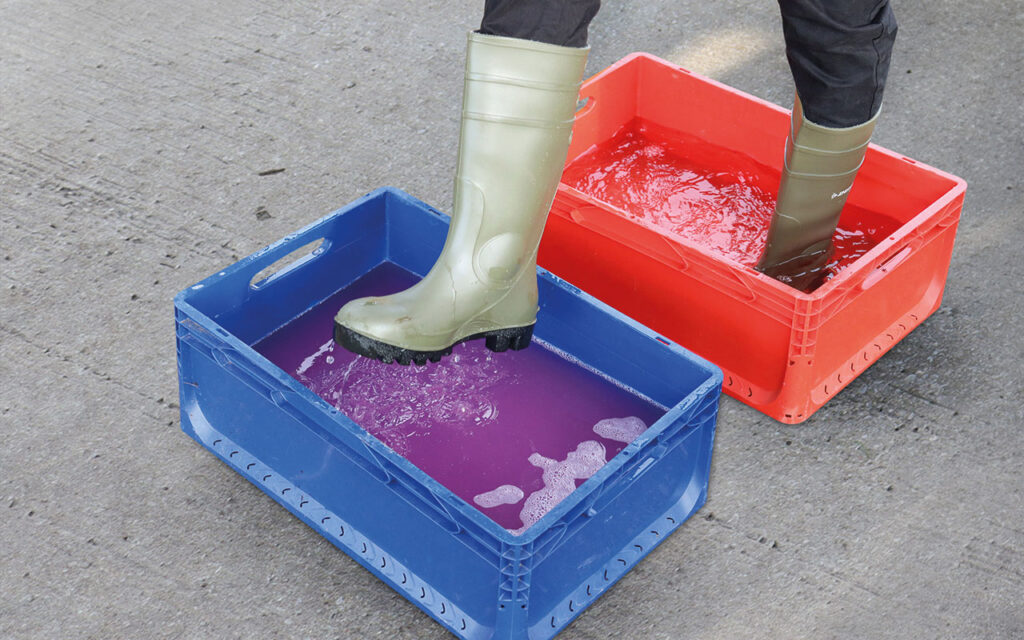 The first case of African swine fever (ASF) in the UK pig herd is very likely to be an isolated incident but, as happened with foot-and-mouth disease, without rapid and appropriate intervention, an outbreak could spread quickly.
The first case of African swine fever (ASF) in the UK pig herd is very likely to be an isolated incident but, as happened with foot-and-mouth disease, without rapid and appropriate intervention, an outbreak could spread quickly.
Pig movements, along with associated staff activities, are likely to be the root cause of disease spread between farms, and modern integrated production systems play a significant role here.
Dr Paul Talling, biosecurity adviser at Livetec Systems, said: “Biosecurity measures must travel with the pigs through every stage of the supply chain – and everyone involved, including farmers, field staff, transport drivers and slaughterhouses, must take responsibility for managing the disease transmission risk.
“Biosecurity is not a sole responsibility, but being responsible assumes a level of knowledge and understanding of the risks,” he added.
“Every part of the supply chain should have robust biosecurity procedures in place to limit disease spread.
“However, if those responsible for implementing biosecurity don’t fully understand why specific procedures are needed or even how they should work, they’re far less likely to follow them correctly.”
Training
Staff training and education are, therefore, crucial parts of implementing any biosecurity system. With staff retention a common challenge throughout the pig industry, providing effective training and empowering staff can also help reduce turnover and encourage better performance
“Empowering staff to play an active role in biosecurity decisions delivers positive outcomes across the supply chain,” Dr Talling said. “When staff are involved in the decision-making process, they develop a stronger sense of ownership over the protocols and are far more likely to follow them closely. Training should always be more than a tick-box exercise – it must add value and provide staff with the tools they need to succeed.”
Muck Free Trucks
 The AHDB’s Muck Free Truck campaign is an industry-led initiative designed to reinforce the vital role clean transport plays in protecting Britain’s pig industry.
The AHDB’s Muck Free Truck campaign is an industry-led initiative designed to reinforce the vital role clean transport plays in protecting Britain’s pig industry.
It calls on everyone in the supply chain to take ownership, recognising that one dirty truck can put the entire sector at risk.
For more information, standard operating procedures and resources, see: ahdb.org.uk/muckfreetruck
Biosecurity beyond the farm gate
While transport plays a major role in spreading pig diseases, farmers share responsibility for managing this specific risk on farm.
As AHDB relaunches its Muck Free Truck campaign, Dr Talling stressed that it is crucial to make sure all lorries entering or leaving a site are clean.
“If a lorry is entering the farm and you’re not comfortable that it is clean, you should stop it and encourage the driver to clean and disinfect the lorry before entering the site. This sounds straightforward but, in reality, this approach is only practical if the farm has its own strategically located washing and disinfection area.”
Many farms now have perimeter-located loading ramps, which means lorries do not need to enter the premises – a good risk mitigation measure. However, there is still a risk of disease transmission via the dirty ramp, or if the driver assists with loading.
Disease is commonly spread on dirty boots and overalls. “It is crucial to keep muck confined to designated areas to prevent cross-contamination between handling areas, sheds and from site to site,” Dr Talling added.
“Many farms implement one-way systems for staff working between sheds, ensuring boots and, occasionally, overalls are changed between areas. Some farms have gone further and assign workers to specific sheds.
“These behavioural changes often stem from staff training and an awareness of the risk, which then empowers the team to make informed, bespoke biosecurity decisions, rather than simply following generic protocols.”
ASF workshops
Livetec is working with AHDB and local vet practices to deliver African swine fever contingency planning workshops. Producers interested in attending in order to enhance their biosecurity management knowledge are advised to contact their vet, AHDB or Livetec directly.




